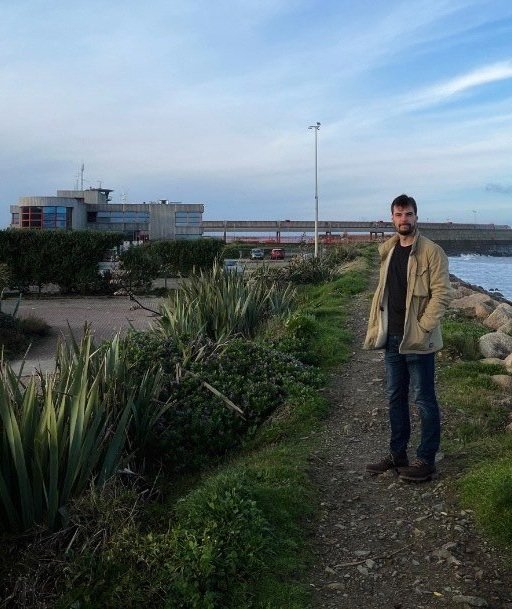A.V. Pankov on Exploring Memories in Writing
Interview by Gabriela V. Everett
Today, we are sharing an interview with the incomparable A.V. Pankov, whose breathtaking, lyrical flash fiction piece “MacGyver’s Musings” was published in Issue II of Mulberry Literary.
What was it that drew you to writing? When did you realize you wanted to become a writer?
My love of stories has run deep for as long as I can remember. It never occurred to me to pursue a writing career in anyway, shape, or form until I was twenty-one, and jobless, in the midst of a recession. With all my prospect of going into the building trade gone, I sought out advice from a local guidance counsellor—querying her, on a pure whim, how I could go about establishing a writing career. She advised me to obtain a degree in journalism. I had nothing to lose.
Five years later, I was a reporter in the Irish Daily Mirror, meeting all sorts of people that I am incredibly glad to have ever crossed paths with. Most importantly, I found myself with the ability to extricate the stories I always carried inside me, the stories that present themselves obtrusively when I look around at the world. Most of my friends with “real jobs” think I’m two sandwiches short of a picnic.
What made you want to write a story about a man who suffers a stroke? Was there something specific that inspired this perspective of a character who’s body and mind now functions differently than what they’re used to?
The principal character is based on my father. Dad suffered a stroke when I was in my early teens that left his entire right side affected, putting his work at risk (plastering, as you might guess). But the image of the story comes from earlier in my childhood, when I would go with him to the [work] site—unwillingly—and be told to scrub buckets greased with gypsum. In between chores, I would watch him, mesmerized, as he worked his magic with the trowel. No speech required. His work was his way of communicating—his native tongue, you might say. That’s where the idea of examining craft as a means of communication came from. We communicate not only through speech, but through practice, actions. Through things unsaid. A lot of the time one comes at the cost of another. Take the protagonist as an example—this man is an ace communicator when it comes to his work. In his speech, not so much.
What drew you to telling “MacGyver’s Musings” in a flash format? Do you find yourself drawn more to writing flash over longer forms?
When I set out to write, the length of the piece presents itself to me preliminarily. I get a feel for it and go in with a blueprint. Sometimes it deviates from the initial concept. If it does, so be it. But if not, I end up with the executed idea, which is a job well done as far as I’m concerned. This piece is only a snapshot—a glimpse—so I knew I would be doing well to keep it contained within 1,000 words. If I went much further than that I would risk spoiling it. . . .
The character of MacGyver is well known in pop culture—what drew you to this story and using his name as your character’s namesake?
In order to demonstrate the protagonist’s exceptional resourcefulness, I needed to make sure it was reflected in the impression he made on his colleagues. So, staying true to the nature of site banter, I had to find a catchphrase that they would use for him. I was in the gym right around that time and someone tacked a piece of chewing gum to the roof to stop a leak. Someone responded with, “Look at fuckin’ MacGyver over here.” And an idea was born.
Are you working on anything new that you would like to share? Where can our readers find more of your work?
My energies have been pumped into writing a novel for the past year. It was completed as of several weeks ago and is currently seeking representation. The book tells the story of a juvenile prison warden in northern Russia during the early 1990s, who presides over a population of unstable youths while the tumult of social and political change of the post-Soviet years swirls around him.
Drawing from my own childhood memories and family interviews—as well as extensive research—I put together a picture of a different, quite bleak Russia to the one you would have seen in newspapers around that time. I consolidated a lot of supporting material, too—two feature-length articles and a short story—which are being planned for the aftermath of the novel’s publication in order to promote the book, so I don’t have a whole lot to flaunt just yet. But it will come soon, and once it does it will be posted on my Twitter handle @tweetofarthur, and on my personal website, avpankov.net.
Arthur Velker Pankov was born in the western Siberian town of Omsk. At the age of nine his family were granted asylum in Dublin, Ireland, where he studied journalism and later worked as a reporter, first with the Irish Daily Mirror and then The Irish Sun. His writing has appeared in other national titles such as the Irish Times and Newstalk. He is currently based in Mayo.
